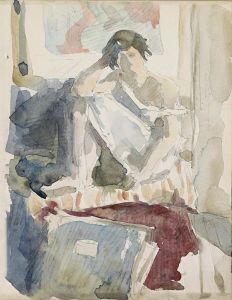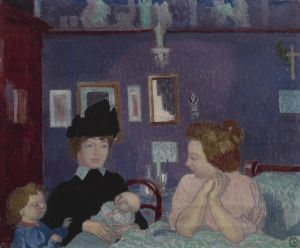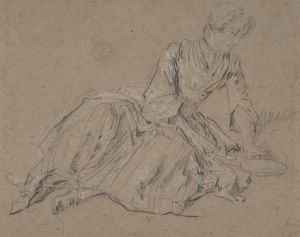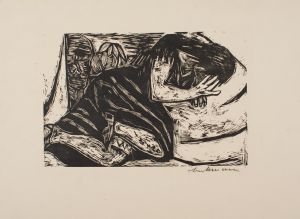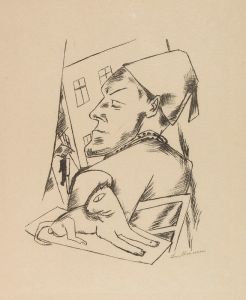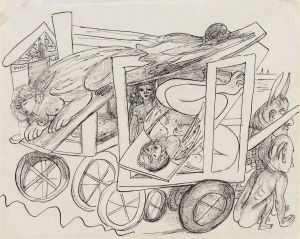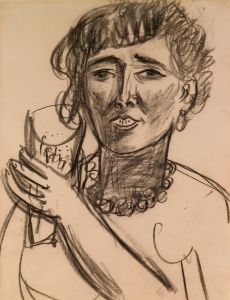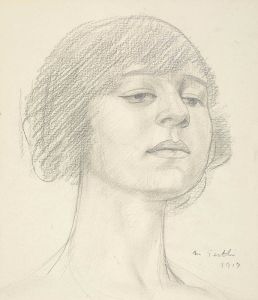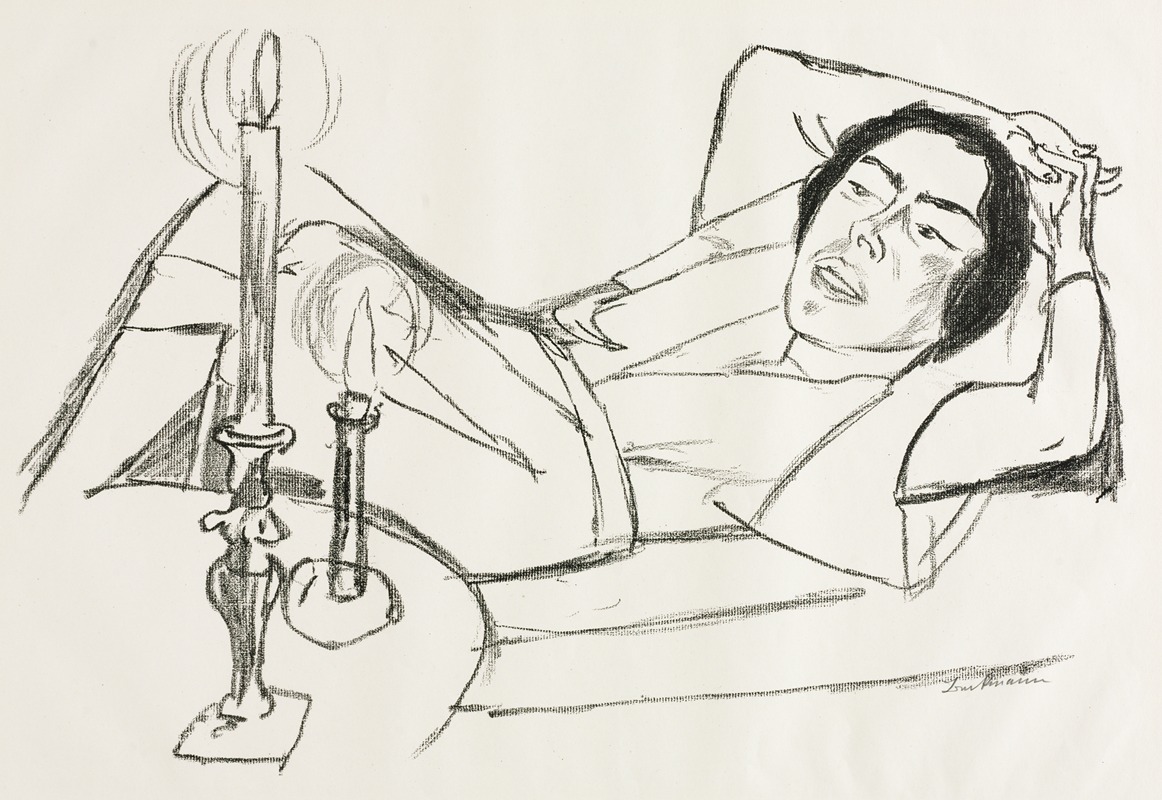
Reclining Woman
A hand-painted replica of Max Beckmann’s masterpiece Reclining Woman, meticulously crafted by professional artists to capture the true essence of the original. Each piece is created with museum-quality canvas and rare mineral pigments, carefully painted by experienced artists with delicate brushstrokes and rich, layered colors to perfectly recreate the texture of the original artwork. Unlike machine-printed reproductions, this hand-painted version brings the painting to life, infused with the artist’s emotions and skill in every stroke. Whether for personal collection or home decoration, it instantly elevates the artistic atmosphere of any space.
"Reclining Woman" is a painting by the German artist Max Beckmann, a prominent figure in the Expressionist movement. Beckmann was known for his vivid and often intense portrayals of the human condition, and his works frequently explore themes of existentialism, identity, and the complexities of modern life. Born in Leipzig in 1884, Beckmann's career spanned several tumultuous periods in European history, including both World Wars, which deeply influenced his artistic output.
The painting "Reclining Woman" exemplifies Beckmann's distinctive style, characterized by bold lines, dramatic contrasts, and a rich, often somber color palette. While specific details about the creation date and the current location of "Reclining Woman" are not widely documented, Beckmann's works from the 1920s to the 1940s often reflect his mature style, which combines elements of realism with a more abstract, symbolic approach.
In "Reclining Woman," Beckmann captures the figure of a woman in a pose of repose, yet the composition and execution suggest a tension beneath the surface. The woman's form is rendered with Beckmann's typical use of strong contours and a sculptural quality, which imbues the figure with a sense of weight and presence. The background and surrounding elements are often simplified or abstracted, focusing the viewer's attention on the central figure and her expression.
Beckmann's work is often noted for its psychological depth, and "Reclining Woman" is no exception. The painting invites viewers to contemplate the inner life of the subject, as well as the broader human experiences of solitude, introspection, and resilience. The use of color in Beckmann's paintings is particularly significant, as he often employed a palette that could evoke a range of emotions, from melancholy to vitality.
Throughout his career, Beckmann faced significant challenges, including the rise of the Nazi regime in Germany, which labeled his work as "degenerate art." This led to his eventual emigration to the United States in 1947, where he continued to paint and teach until his death in 1950. Despite these obstacles, Beckmann's work has been celebrated for its profound impact on modern art, and he remains a key figure in the study of 20th-century painting.
"Reclining Woman," like many of Beckmann's works, reflects his ability to convey complex emotional and philosophical themes through the medium of paint. His paintings often serve as a mirror to the societal and personal upheavals of his time, capturing the essence of human experience with both empathy and critical insight. Beckmann's legacy continues to influence contemporary artists and is the subject of numerous exhibitions and scholarly studies, ensuring that his contributions to the art world are recognized and appreciated by future generations.





